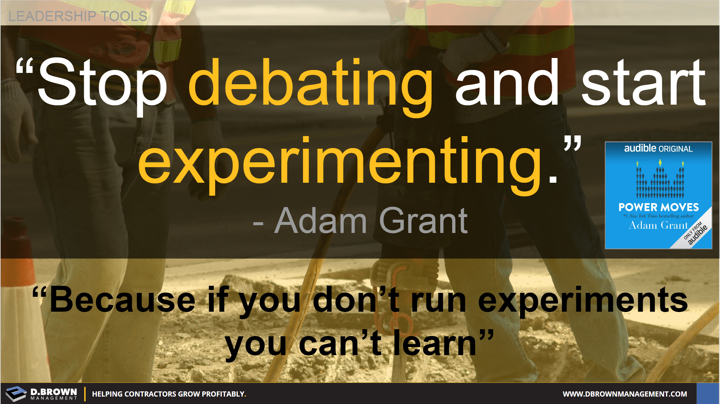- Make an observation
- Ask questions about the observation and gather information
- Form a hypothesis about what created the outcome and make predictions about the future state based on the hypothesis
- Test the hypothesis in an experiment that can be reproduced
- Analyze the data from the experiments that either validates or invalidates the hypothesis
- Reproduce the experiment until there are no discrepancies between observed results and theory
Experiments are hard to run in complex environments like a construction company. That does not mean that you should not attempt to make the best observation, hypothesis, and experiments you can for a given situation.
Adam Grant talks with the CEO of Goldman Sachs in the book Power Moves about experimentation in what works best for recruiting and retention.

